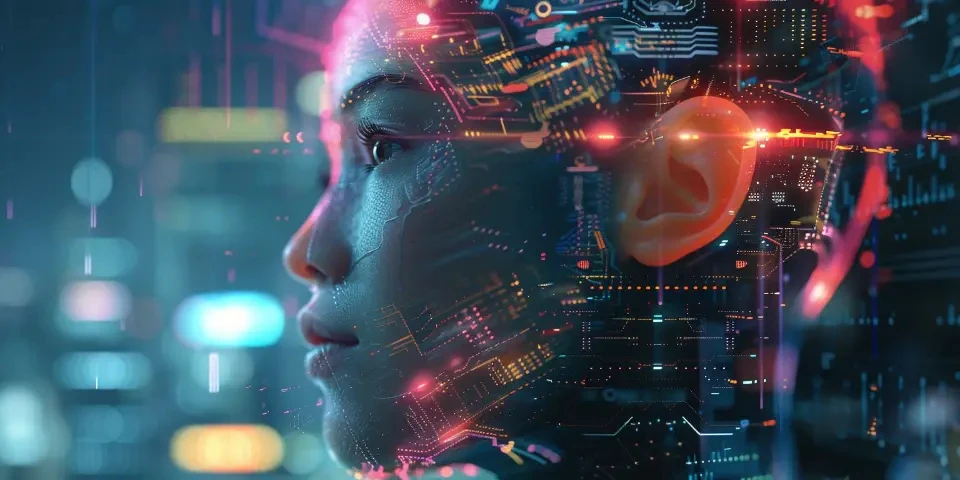AI Assistants in Education Revolutionizing Learning and Knowledge Retrieval
Artificial Intelligence (AI) has made remarkable progress in revolutionizing various industries, and the field of education is no exception. With the development of AI assistants, learning and knowledge retrieval have undergone a significant transformation. These intelligent systems use machine learning algorithms to analyze data, understand human language, and provide personalized assistance to students. In this article, we will explore how AI assistants are transforming education from multiple aspects.
1. Personalized Learning:
AI assistants have the ability to adapt to the unique needs and learning styles of individual students. By analyzing data on their performance, preferences, and strengths, these assistants can create personalized learning plans and recommend appropriate resources. This personalized approach helps students to grasp difficult concepts more effectively, leading to improved academic performance.

Furthermore, AI assistants can adapt their teaching methods in real-time based on the student's comprehension level. They can provide additional explanations, examples, or even modify the pace of the learning materials to ensure maximum understanding.
2. Instant Feedback and Assessment:
AI assistants provide instant feedback and assessment, eliminating the need for manual grading and reducing the burden on teachers. These assistants can accurately evaluate assignments, quizzes, and exams, providing detailed feedback to students on their strengths and areas for improvement.
Additionally, AI assistants can identify patterns in students' performance and provide targeted intervention when necessary. They can identify learning gaps and suggest relevant practice exercises or additional study materials to help students overcome difficulties.
3. Enhanced Student Engagement:
AI assistants incorporate interactive and engaging elements into the learning process, keeping students actively involved. Through gamification techniques, such as quizzes, challenges, and rewards, AI assistants can motivate students to participate and explore subjects beyond the traditional classroom setting.
Moreover, AI assistants can engage students in natural language conversations, allowing them to ask questions and seek explanations. This enhances the learning experience, as students can receive immediate responses and clarification in real-time.
4. 24/7 Learning Support:
Unlike human teachers, AI assistants are available round the clock, providing continuous learning support. Students can access these assistants from anywhere, anytime, enabling flexible learning schedules to accommodate their individual needs.
Additionally, AI assistants can offer assistance in multiple languages, breaking down language barriers and making education accessible to a wider range of students.
5. Expert-level Knowledge Retrieval:
AI assistants have access to vast amounts of information, allowing them to provide students with expert-level knowledge retrieval. With their ability to process and analyze large datasets, AI assistants can quickly retrieve relevant information from various sources, such as textbooks, articles, and online databases.
This feature is particularly useful in research projects, where students can receive accurate and up-to-date information within seconds. AI assistants can also guide students in citing sources properly and avoiding plagiarism.
6. Special Education Support:
AI assistants can provide support to students with special educational needs. These assistants can adapt their teaching methods, pace, and content to suit the requirements of students with disabilities or learning difficulties. They can offer additional resources, provide step-by-step explanations, and assist with the development of specific skills.
Furthermore, AI assistants ensure privacy and confidentiality, creating a comfortable learning environment for students with special needs.
7. Data-driven Decision Making:
AI assistants gather and analyze vast amounts of data about students' learning patterns, performance, and preferences. This data can be used to generate insights and trends that can inform educational institutions' decision-making process.
By identifying areas of improvement and specific challenges faced by students, institutions can implement targeted interventions and tailor their teaching strategies. This data-driven approach facilitates continuous improvement in the education system.
8. Ethical Considerations:
While AI assistants bring numerous benefits to the field of education, it is essential to address ethical considerations. Data privacy, bias, and the potential for replacing human teachers are some of the ethical dilemmas associated with AI assistants in education.
It is vital to ensure that student data is securely stored and that proper consent is obtained before collecting any personal information. Additionally, AI algorithms should be regularly audited to detect and mitigate biases that may restrict equitable access to education.
Frequently Asked Questions:
Q: Will AI assistants replace human teachers?
A: AI assistants are designed to support and enhance the role of human teachers, not replace them. They can provide personalized assistance, instant feedback, and access to vast amounts of information. However, the guidance and mentorship provided by human teachers are crucial for critical thinking, emotional support, and social development.
Q: Can AI assistants adapt to different educational systems and curricula?
A: Yes, AI assistants can be customized to align with different educational systems and curricula. Their algorithms can be trained and adjusted to suit the specific requirements and standards of different institutions.
Q: How are AI assistants different from traditional online learning platforms?
A: AI assistants are more interactive and personalized compared to traditional online learning platforms. They incorporate natural language processing techniques, offer instant feedback, and adapt the learning experience to the individual student's needs. Traditional online learning platforms typically provide pre-recorded lectures and resources without personalized guidance.
Conclusion:
In conclusion, AI assistants are revolutionizing education by providing personalized learning experiences, instant feedback, and enhanced engagement. They offer round-the-clock support, expert-level knowledge retrieval, and assistance to students with special educational needs. However, ethical considerations must be addressed to ensure data privacy and mitigate biases. With the continued advancement of AI technology, the role of AI assistants in education will undoubtedly continue to grow, supporting and complementing the work of human teachers.
References:
[1] Johnson, W. L. (2019). Intelligent Tutoring Systems. In Artificial Intelligence in Education (pp. 167-195). Springer.
[2] D'Mello, S. K., & Calvo, R. A. (2018). Advances in AutoTutor and affective autotutor. Applications of affective computing in human-computer interaction, social robotics, and wearable technologies, 281-313.
[3] Hien Nguyen, D., & Walkingshaw, E. (2021). A Survey of Intelligent Tutoring Systems with Recent Advances and Open Challenges. arXiv preprint arXiv:2109.13569.
Explore your companion in WeMate